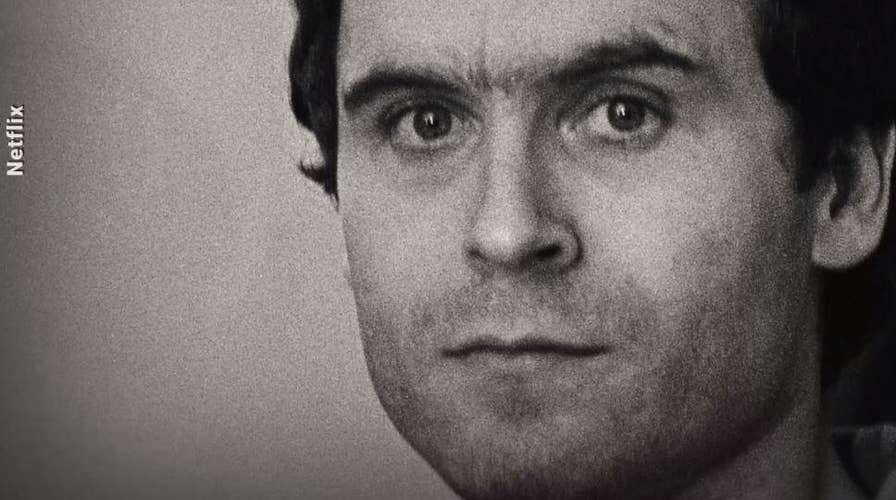New Netflix docuseries reveals unsettling Ted Bundy revelations
Joe Berlinger talks to Fox News about his new Netflix docuseries on Ted Bundy.
On the night before his death, Ted Bundy was eager to convince the world that he was ready to “clear his soul” — but Joe Berlinger isn’t buying it.
The Oscar-nominated filmmaker is gearing up to launch his new Netflix docuseries titled “Conversations With a Killer: The Ted Bundy Tapes,” which details how journalists Stephen Michaud and Hugh Aynesworth spent a hundred hours interviewing the murderer on death row in 1980.
TED BUNDY'S DEFENSE ATTORNEY TELLS ALL
It features never-before-heard conversations with the “Jack the Ripper of the United States” where he analyzes his own life and motives, as well as recollections from those directly connected to the case, including prosecutors, defense attorneys, detectives and a surviving victim.
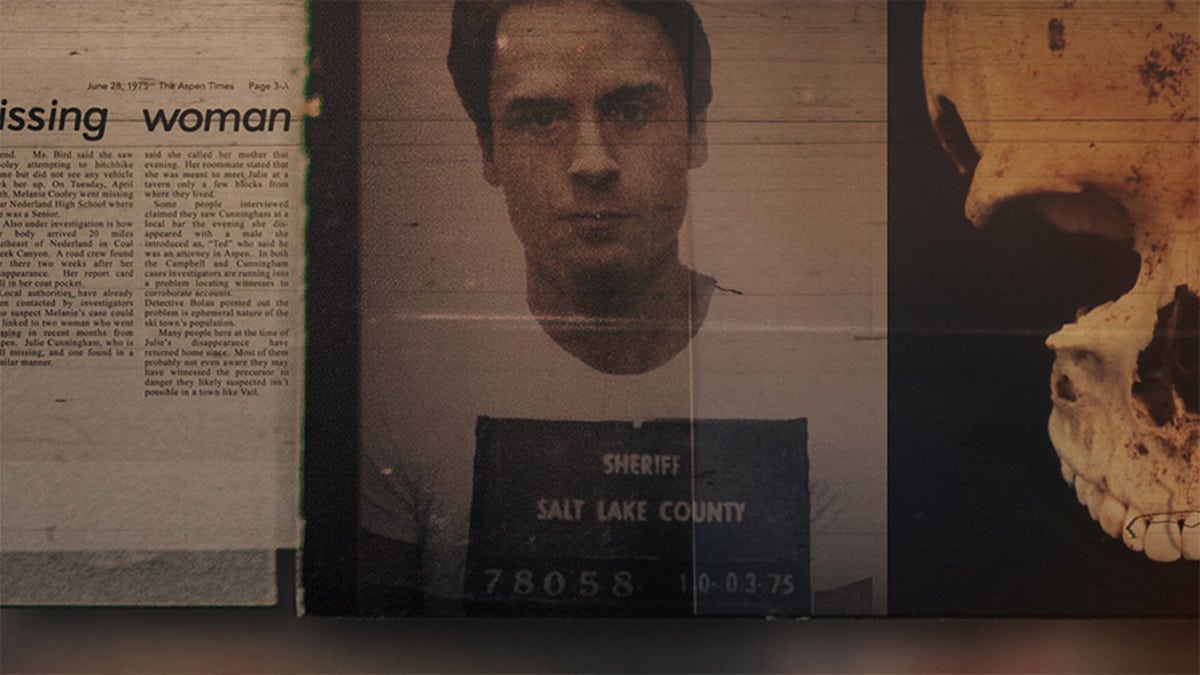
(Netflix)
The documentary premieres on January 24 — the day of his 1989 execution in Florida at age 42.
The film shows how, during the final hours of his life, Bundy tearfully blamed his addiction to pornography for fueling his killing spree.
The Vermont native ultimately confessed to murdering more than two dozen women and was sentenced to death after being convicted of killing two Florida State University sorority members and a 12-year-old girl.
'IN COLD BLOOD' MURDERS REVISITED
“Like most other kinds of addiction, I would keep looking for more potent, more explicit, more graphic kinds of material,” said Bundy. “Like an addiction, you keep craving something which is harder, harder, something which gives you a greater sense of excitement.”
Berlinger said it was merely another form of manipulation from the charismatic madman.
“The feeling was he was using religion,” Berlinger told Fox News. “I don’t feel he demonstrated any kind of remorse. It took him until the final days of his life to confess. It all felt like a ploy to extend his life. … He had a decade on death row to think about his actions. Yet he continued to deny. And that’s unique among serial killers.
"Most serial killers when they’re caught just spill the beans. It’s almost believed they want to be caught. But Bundy denied up until a few days before he died. I think it was a calculated attempt to be useful to the religious right. … And he didn’t really talk about pornography or feeling remorse in his interviews over the years.”
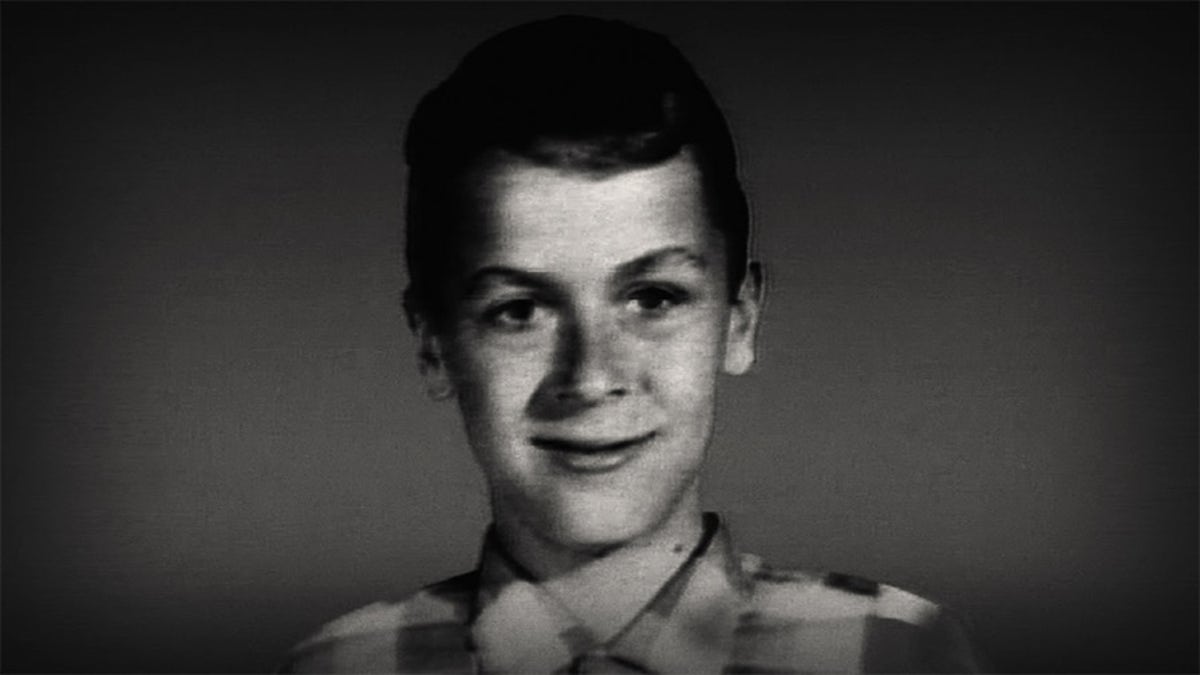
Ted Bundy as a child. — Netflix
ALLEGED SERIAL KILLER WAS 'LIKE THE DEVIL' IN COURT
But what Bundy previously shared on the tapes was much more horrifying, said Berlinger.
“He had everything going for him and yet he had this compulsive need to kill,” he explained. “During the six years that he was doing this killing spree, he was a wonderful boyfriend who’s a surrogate father. By all accounts, he was a good guy. But the tapes were so chilling to me because he was so clinical in his descriptions. He, of course, talked in the third person and it allowed him the freedom to get into certain, specific details.”
“Who is lucky enough to escape from prison even once while you’re on trial for murder, let alone twice?” Berlinger continued. “Yet two weeks after his second escape from Colorado in 1977, he ends up at Florida State University and does his most vicious killings, all in one night. He’s so frenzied that he goes down the street and tries to kill somebody. Then a few weeks later he kills a 12-year-old girl in Florida. That to me suggests that despite his outward appearance of warmth, friendliness and intelligence, this compulsion to kill was a priority over anything.”

Ted Bundy and his girlfriend Elizabeth Kloepfer. (Netflix)
In the tapes, viewers will learn how growing up, Bundy was an awkward child who struggled to interact with girls and primarily kept to himself — far from the handsome, charismatic law student who was passionate about pursuing a political career for the Republican Party.
CLICK HERE TO GET THE FOX NEWS APP
But Bundy himself said a “malignancy” of his personality possessed him.
“There was a voice that he called the entity that would speak to him about committing violence to women,” Berlinger described. “And that voice grew louder and louder.”
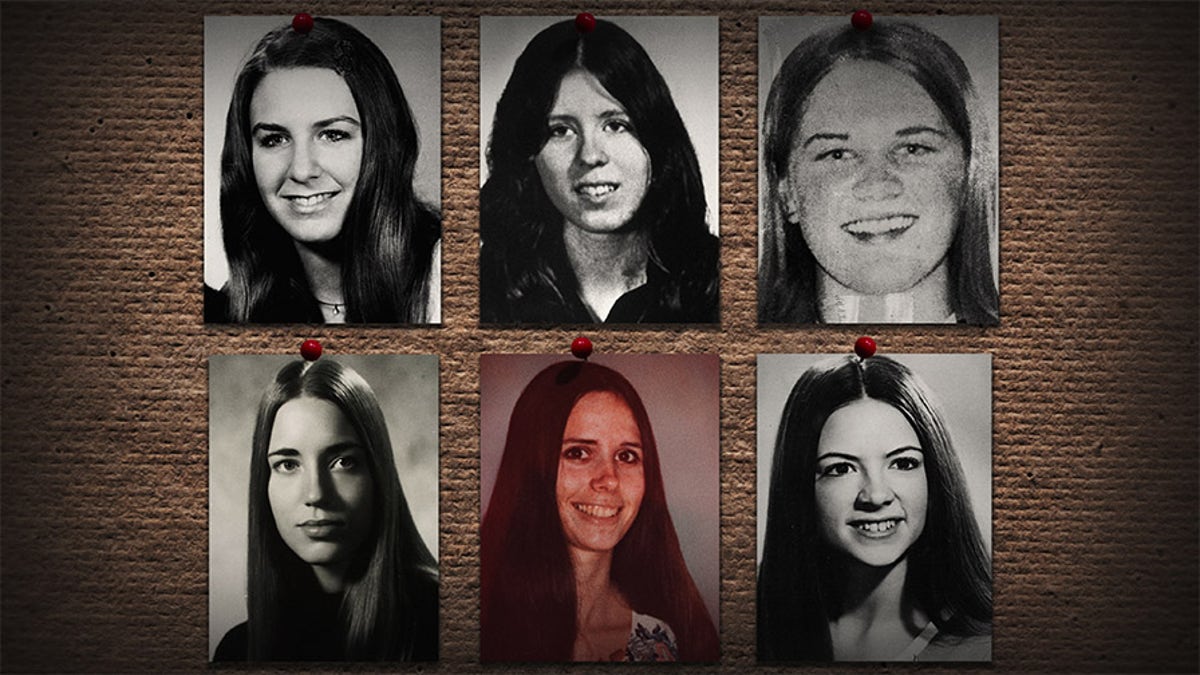
(Ted Bundy's victims. — Netflix)
“The tension would be too great and the demands and expectations of this entity would reach a point where they just could not be controlled,” Bundy himself described.
Michaud also said Bundy expressed that his thrill of killing came from “possessing” his victims “physically as one would possess a potted plant, a painting or a Porsche. Owning, as it were, this individual.”
And Bundy desired a “lifeless female form.” Michaud said Bundy admitted to police detectives that several of his victims were buried in shallow woodland graves where he would sometimes revisit them. One of the victims found frozen in the mountains of Utah “appeared to have received a post-mortem shampoo.” Another received “a fresh application of makeup.” Bundy also photographed his victims and “kept a stash of their skulls” in his apartment.
According to Michaud, Bundy told FBI agent Bill Hagmaier that “murder isn't just a crime of lust or violence. It becomes possession. They are part of you ... You feel the last bit of breath leaving their bodies ... You're looking into their eyes ... A person in that situation is God!"

(Netflix)
“Many serial killers love to revisit, relive their crimes,” said Berlinger. “Because he was given the opportunity to talk in the third person and ‘speculate’ about these crimes, I think it tapped into his narcissism and it allowed him to talk freely. I think speaking in the third person opened up the floodgates.”
Berlinger shared there were two women who did not participate in the documentary — his ex-wife Carole Anne Boone and their daughter Rose, who was conceived after an alleged conjugal visit.
Rolling Stone previously reported Boone, a divorced mother of two, married Bundy in 1980 and gave birth to Rosa in 1982. She allegedly smuggled cash to Bundy to help fund a 1977 prison escape. The couple reportedly divorced in 1986.
“Rosa and Carole Anne Boone, we attempted to find and reach out to,” Berlinger told Fox News. “They’re impossible to find. They've kind of checked out of being made findable by the press years and years ago. During the years Bundy was on death row, [Carole] believed him, but then at one point, I think she started to pull away. Certainly by the time he confessed at the end. From that point on, it became impossible to find those two people."
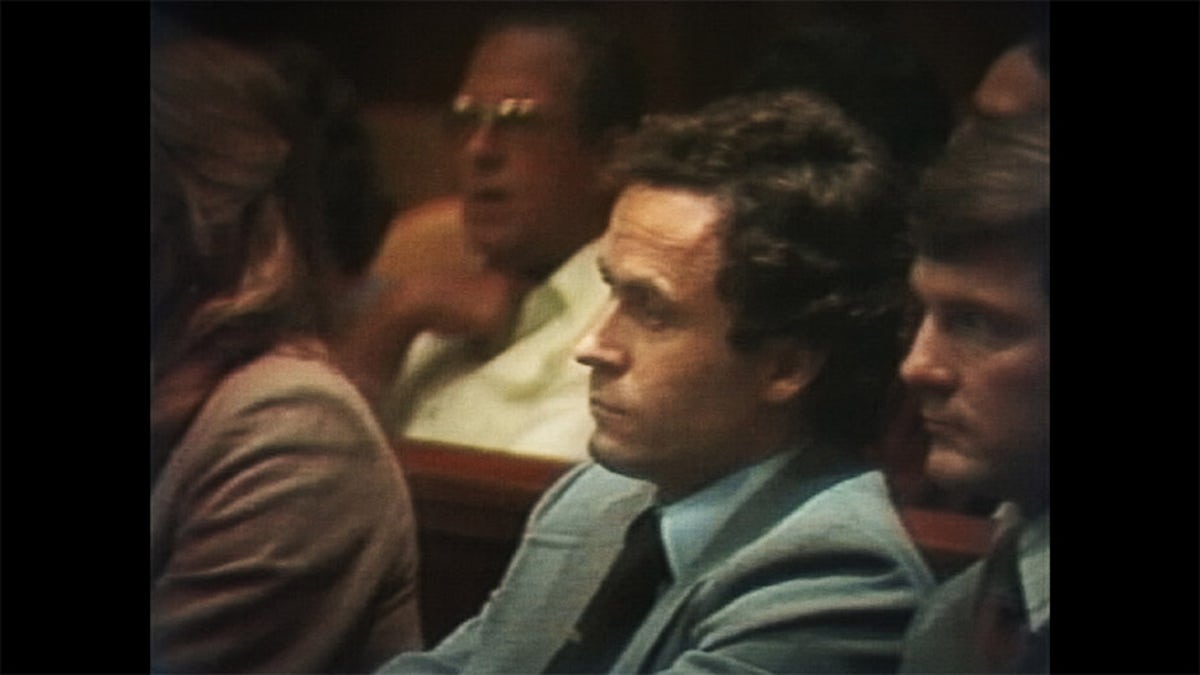
Ted Bundy famously proposed to Carole Ann Boone in court. — Netflix
Author Ann Rule, who worked with Bundy before she learned he was a serial killer, has described Rosa as “a kind and intelligent young woman.”
Berlinger said there was one haunting message Bundy had for anyone listening to the tapes today.
“At the end of the day, you don’t really know who that person is next to you and what they’re capable of,” he explained. “As Bundy himself says, ‘Killers don’t emerge from the shadows with long fangs and dripping with blood.’ They are your brother, your sister, the people you know and trust who could turn out the very next day to be the most demonic people ever imagined. Obviously, it’s an extreme statement, but I think there’s a lot of truth to it.
“The people who do the most evil are often the people you least expect. … I think that’s sadly an important lesson. People need to earn your trust. And even when they earn your trust they can sometimes betray it. That’s a dark message for people to wrap their heads around, but that’s what he teaches us.”
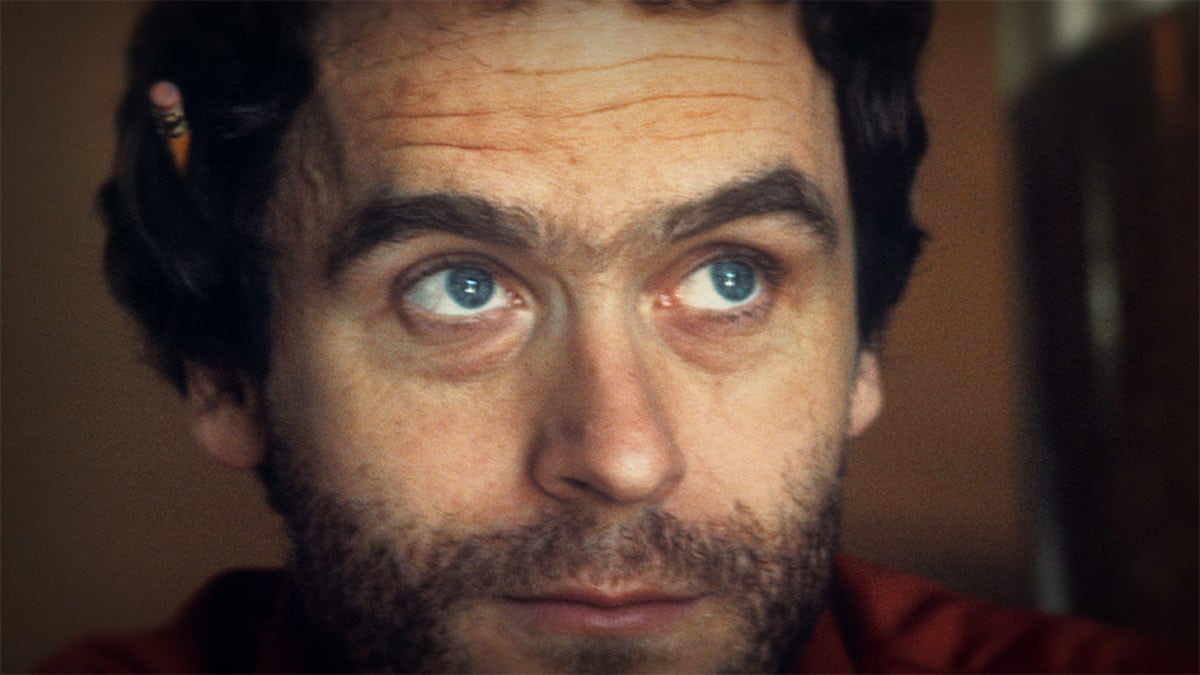
(Netflix)
“Conversations with a Killer: The Ted Bundy Tapes” premieres Jan. 24 on Netflix.




















